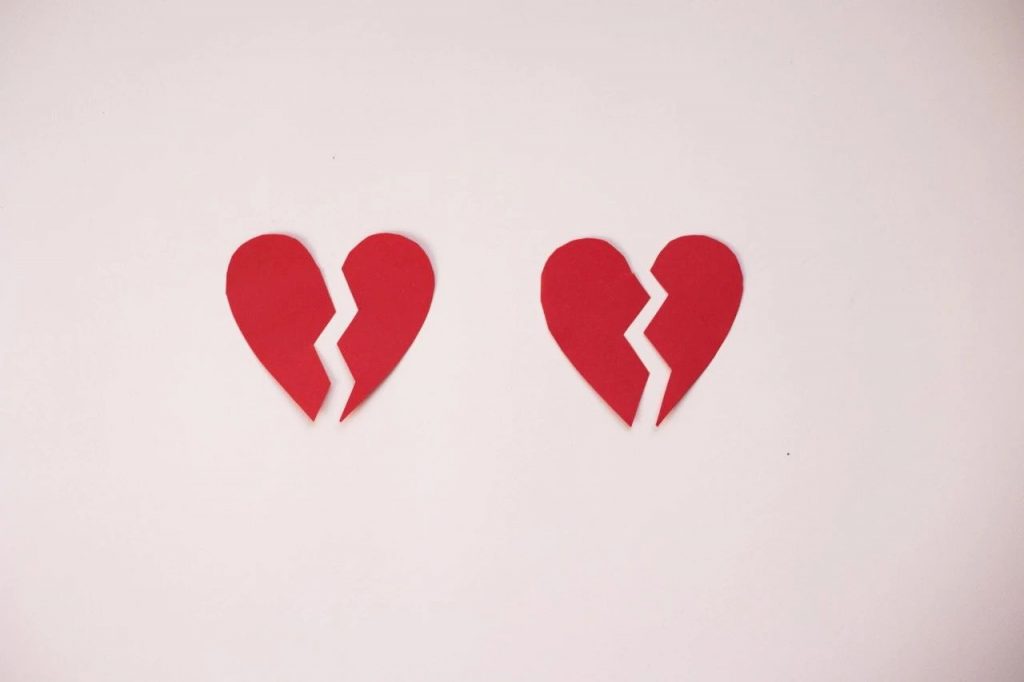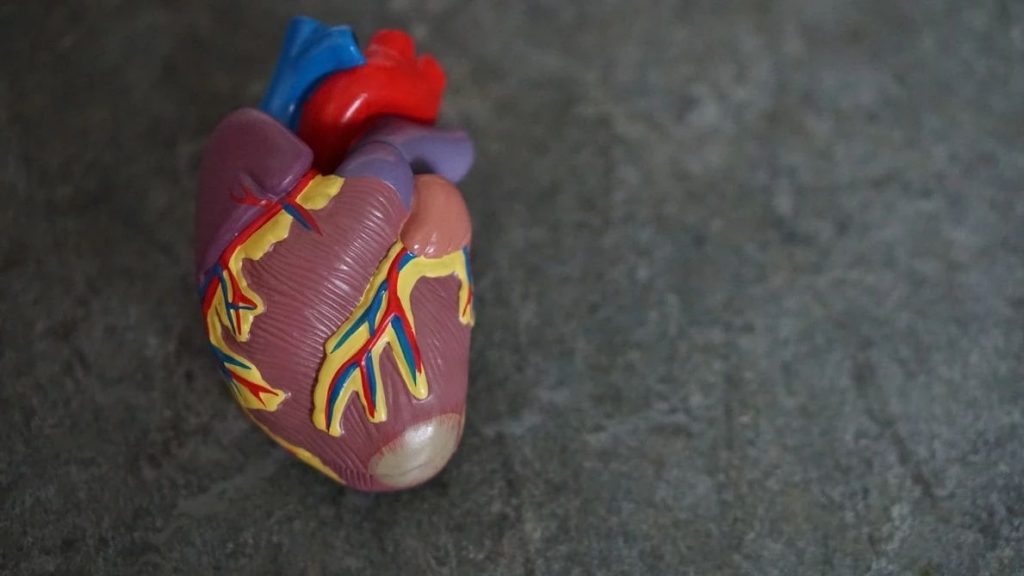
Heart contains two meanings. One refers to the organ that promotes blood circulation in the human body, that is, the heart; the other refers to mental and psychological factors such as thoughts, emotions, and emotions.
Mental health and heart health influence each other. Long-term bad emotions may cause heart discomfort, and heart disease can also make people feel negative.

Stress makes the heart “poisoned”
The heart is not just an organ, its activity is inseparable from the mental state of people.
When a person is stimulated or emotionally fluctuated, the neurotransmitters in the body will constantly fluctuate. Among them, adrenaline, norepinephrine and dopamine exert the greatest ability. Abnormal fluctuations of neurotransmitters will cause the capillary network to shrink continuously, and the proportion of heart problems will be higher than normal people. It can be said that intense stimulation and long-term stress can poison the heart.

If the pressure is beyond the human tolerance range, and it is difficult to eat or sleep well every day, you will start to wonder when you lie down.
The continuous depressed mood will change the formed components of the blood. The most typical one is platelets. The innermost layer of the blood vessel is the endothelium, which is like a wallpaper pasted on the wall.
Under constant pressure, endothelial cells begin to die out. After a small piece is taken off, a mottled “wall” is exposed. Platelets are likely to accumulate on it to form thrombi, leading to myocardium. Ischemia.
“The Journal of the American College of Cardiology” once published a new study jointly completed by Northwestern University and Harvard University.
Scientists said that mental health and mental condition are importantly related to heart disease. Optimistic people will have a significantly low heart disease incidence and death rate.
Darwin Rabat, a professor at Northwestern University’s Feinberg School of Medicine, and his research team combed and analyzed a number of existing research data, and discussed the social environment, psychological well-being, and the effectiveness of intervention strategies in disease prevention and treatment.
They found that the risk of death from heart disease was about 38% lower than the average for those with a positive attitude and a clear life goal.
Based on research data, scientists have summarized the ways in which a good attitude affects heart health:
1. Emotional changes directly affect the level of harmful and beneficial hormones in the human body. An optimistic attitude can reduce the levels of stress and anxiety hormones (adrenaline and cortisol), thereby reducing heart rate and blood pressure, and reducing the burden on the heart.
2. Positive and optimistic people are good at managing stressors through planning strategies.
Negative pessimists first think that they are out of control and are prone to take some ineffective measures, which can lead to superimposed stress, increased levels of inflammation in the body, and deteriorating heart health.
Psychology and heart are a quarrelsome but loving couple
In the outpatient clinic, patients often come to see the doctor because of symptoms such as chest tightness, chest pain, palpitation, shortness of breath, insomnia, and dreaminess.
However, after various examinations, no organic heart disease is found, nor is there any possible cause of such disease. Symptoms of other diseases. At this time, it is necessary to consider the problem of cardiac neurosis.
Cardiac neurosis, also known as cardiac neurosis, is more common clinically, and is more common in young and middle-aged people, especially women.
The disease is mainly due to autonomic dysfunction that leads to symptoms of the cardiovascular system, such as chest pain, chest tightness, shortness of breath, palpitation, long breath, anxiety, poor sleep, and sometimes accompanied by fast heart rate and easy sweating.
The common causes of cardiac neurosis are: irregular life, lack of sleep, work stress, mental pressure, fear, unhappy things in work or life.

In fact, psychology and heart are a pair of happy friends. Acute stress and long-term bad mood can cause or aggravate heart disease. In turn, heart disease can also interfere with the patient’s normal mood.
The National Health Survey of the United States shows that the incidence of major depression in patients with heart disease is 9.3%, while the incidence of patients without physical diseases is only 4.8%.
Another survey showed that more than 50% of critically ill patients with mental illness are the final cause of death due to myocardial infarction.
4 types of people are most susceptible to psychological heart disease
In 1995, Professor Hu Dayi first proposed the concept of “double heart medicine” in China.
According to clinical observations, several groups of people are particularly prone to double heart disease.
Bicardia refers to cardiovascular disease on the one hand, and mental illness (psychological disorder) on the other hand. This kind of disease often means that the heart and the psychology mutually influence and intersect each other, causing each other to produce the disease, and can be accompanied by each other in the course of the occurrence of the disease to aggravate the development of the disease.
01. Elderly
Along with age, various functions are diminished, and the spirit tends to be tense and unable to carry things; and the tolerance for tolerance decreases, and it is always unaccustomed to all kinds of things.
As a result, their neurotransmitters are prone to abnormal secretion, psychological and emotional problems arise at the historic moment, which in turn harms heart health.
For example, a patient has high blood pressure as soon as he hears the ringing of the phone, because he is always afraid of receiving fraudulent calls, afraid that someone will call and say that there is something wrong with his children.
02. Menopausal people
Before and after menopause, women’s hormone levels decrease, leading to disturbances in the body’s environment and mood swings.
If you can’t adjust your physical and mental state, your heart disease will gradually become a real heart disease.
Men in their 50s often feel that they are unable to do everything because of their declining hormone levels. But work pressure still exists, and without proper adjustments, various heart problems may also occur.

03. People engaged in high-risk jobs and high mental stress occupations
For example, reporters, finance, police, miners, etc., as well as some people who have heavy responsibilities or who work very seriously and are overly nervous. Long-term nervousness may develop into psychological heart disease.
04. Sensitive, introverted, anxious person
The neuroendocrine system in this type of human body is easily activated, and the secretion of adrenaline and norepinephrine increases, which triggers vasoconstriction and easily leads to the damage of coronary arteries and blood vessels.
Throw away anxiety to save the heart
Feeling flustered anytime, and then becoming sore and weak and having a sudden blackout for a few hours; there are neurological symptoms, such as sensitivity to the sound, difficulty falling asleep or waking up early; nervous balance is imbalanced, nervousness when things come, and it’s hard to relax when things are over. If the above symptoms occur , please go to the hospital for medical treatment.
The “psychological heart disease” clinic is a pioneering model of cardiovascular disease diagnosis and treatment. The usual model is that a cardiologist and a clinical psychologist provide medical consultation services for cardiovascular patients at the same time.
Doctors usually take two-way assessments, from electrocardiogram, echocardiography, and biological indicators to assess whether he really has heart disease and how serious it is; if there is no heart disease, he needs to assess his emotional and psychological problems, and find out hidden depression, etc. disease.

The treatment of psychological heart disease is mainly divided into four aspects:
Psychological support treatment
Encourage patients to spend more time with family and friends, find emotional outlets, and talk reasonably; less spend time with people with negative energy, because anxiety is contagious; also change one-way thinking and try to say less “I think” , “I think”, “You should” and the like.
Women should avoid “Chinese mother-like anxiety”, don’t always worry about their children, and trust them to take care of themselves. In addition, a study pointed out that a hostile person loses 7 years of life. I suggest you be kind to people, look at their strengths, and be patient for 3 seconds before losing your temper.
Change lifestyle
Persist in 40 minutes of physical exercise every day (jogging, skipping rope, swimming, etc.) to accelerate the blood circulation in the body, help restore the balance of hormone secretion, and exercise psychological adjustment ability.

Adjust the diet
Adopt a balanced, diversified, and restrained diet to supplement various nutrients, which will help improve the emotional state of patients. Don’t blindly eat, eat some meat, eggs, and milk.
Eat cheese, walnuts and foods rich in anthocyanins once or twice a week. Drinking a small amount of red wine will help restore the balance of neurotransmitters.
Medical treatement
Using some neuromodulation drugs, anti-anxiety and anti-depressant drugs, plus some Chinese patent medicines, help patients get rid of depression and anxiety in time.
Comments